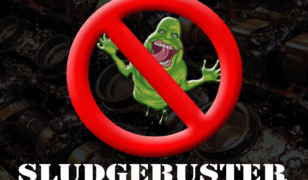EVs and the Hidden Cost of Green Energy. The Human Price of Dirty Nickel

As the world races toward electric vehicles, Indonesia has become the unlikely poster child for the global nickel boom. Its low-cost, low-grade nickel is now the backbone of Chinese-made EV batteries and, by extension, many of the EVs on roads worldwide.
For young Indonesians, this industry boom has meant jobs, 250,000 of them, and wages that seem like a windfall at $400 a month. But that pay comes with a grim trade off, high risk, little protection, and virtually no accountability.
Union official Jay Jaelani, who works at the sprawling Morowali Industrial Park, says safety is often the first casualty in the race to the bottom. He reports eight to ten serious workplace incidents per day. That’s everything from dismemberment to death, with videos of these incidents quietly making the rounds on TikTok and Instagram.
“We’re dying so the world can drive electric cars,” Jaelani says bluntly.
Meanwhile, environmental watchdogs and researchers are sounding the alarm on heavy metal contamination from these nickel operations. At Weda Bay Industrial Park, a remote site near the contested West Papua region, nickel waste is being dumped directly into the ocean. The government has quietly reclassified some hazardous materials as “Non Hazardous,” making it all legal on paper.
Independent researchers like Annisa Maharani have documented dangerously high levels of arsenic and mercury in blood samples from local residents and workers. One smelter worker, 23 year-old Gleen Immanuel, collapsed multiple times on the job before being airlifted to a nearby hospital. The company never told him what caused it, just vague statements about “something wrong inside your body.”
And yet, both the Indonesian and Chinese governments remain tight-lipped about output or environmental impact data. Still, estimates suggest Weda Bay alone may be supplying up to 20% of the world’s nickel, with more expansion underway. Powered by coal (five plants operational, seven more on the way), the site could soon emit more greenhouse gases than entire nations like Brazil or Spain.
Ironically, this dirty nickel has crushed Australia’s cleaner, more regulated nickel industry. BHP’s $4.7 billion investment into sustainable nickel, including solar-powered operations, is now in limbo. Nickel West is shuttered, and thousands of Aussie workers are out of jobs.
As EV adoption surges (nearly 10% of cars sold in Australia last year were electric), questions grow louder. Can we really call this a “green” transition if it relies on exploitative labour, pollution, and secrecy ?
Government ministers declined to comment. So did most major automakers, though a few offered carefully worded statements about sustainability goals and due diligence policies. Volkswagen, BMW, and Ford claim to be working on improving oversight and local engagement. Others, like Chery and Deepal, avoided the question entirely.
For now, the demand for cheap nickel continues to soar and Indonesia keeps supplying it, no matter the cost to its people or its ecosystems.



